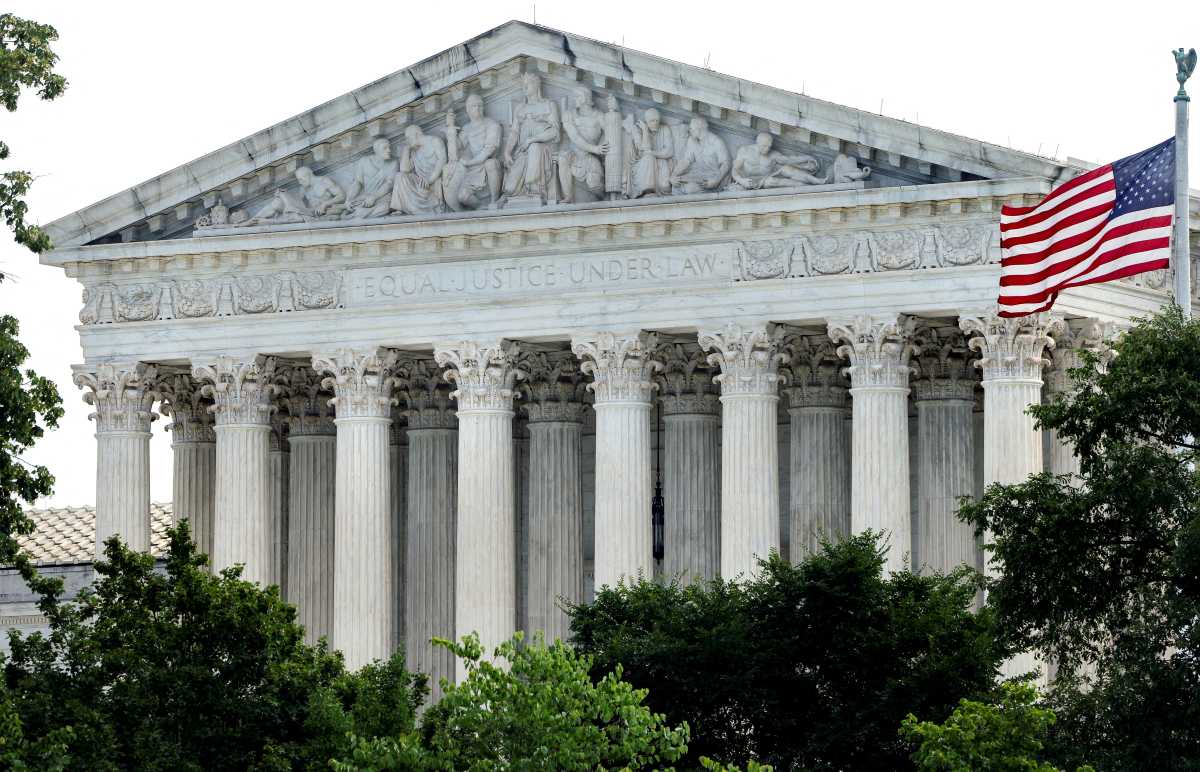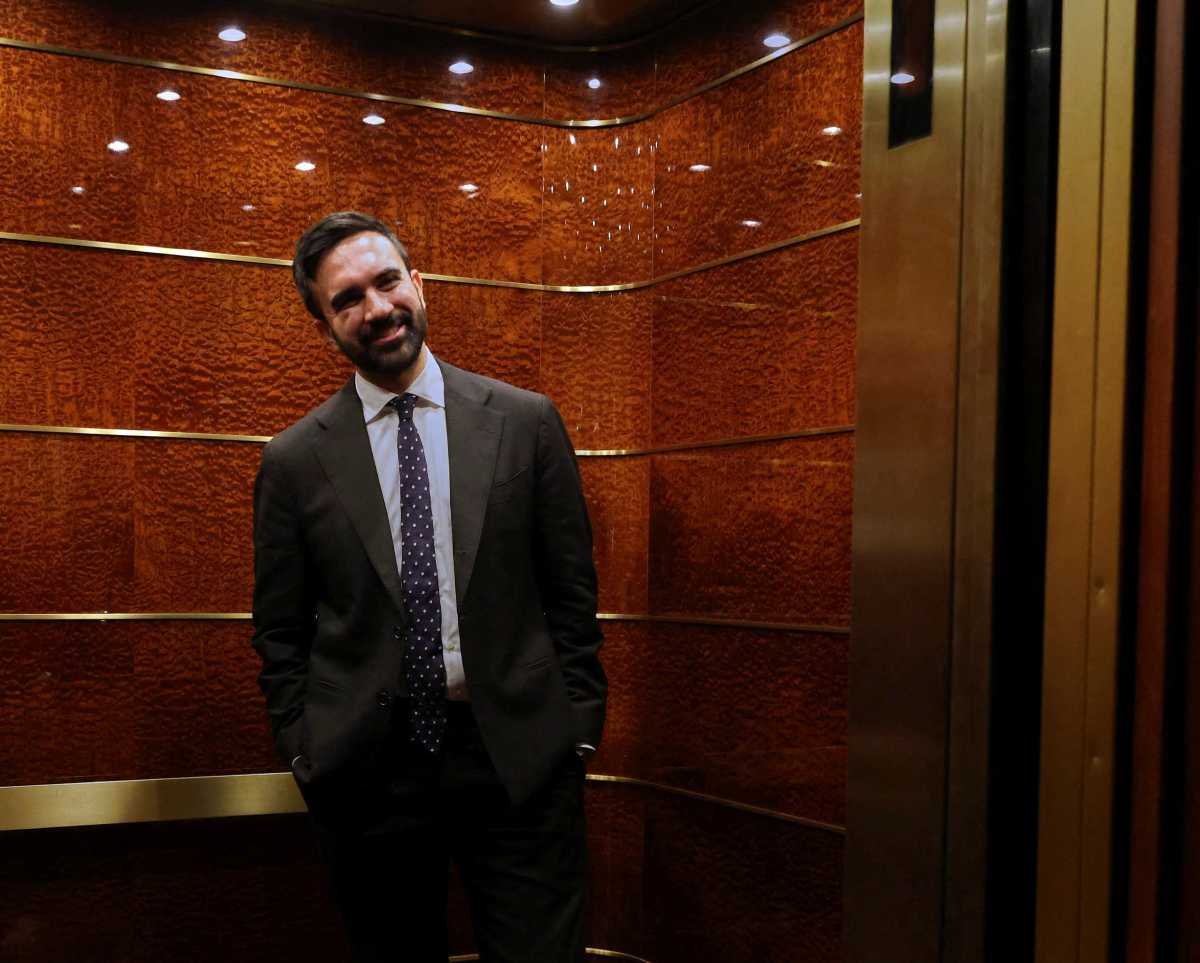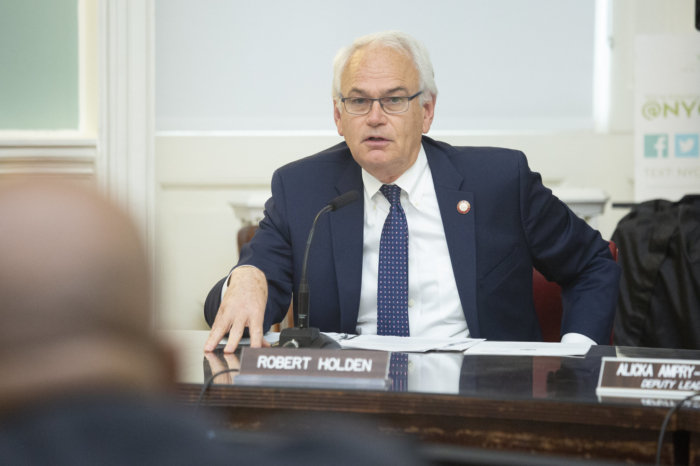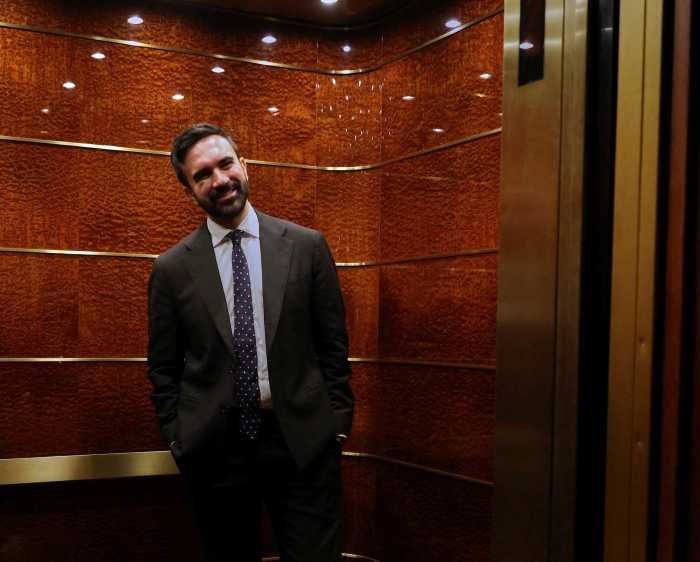By Ed Gold
The preemptive strike into Iraq by the United States and the United Kingdom has actually made the world less safe than before the war, Hans Blix, the United Nations chairperson of the International Commission on Weapons of Mass Destruction, told a clearly sympathetic audience at New York University on Monday night.
He said American credibility had been seriously hurt in many parts of the world, that the war had sharply increased “hatred” towards the U.S. in Iraq and elsewhere, and that the U.S. had further damaged its reputation by indicating “the U.N. didn’t matter.”
The veteran Swedish diplomat, soft-spoken throughout the evening, chided President Bush and his inner circle for “salesmen techniques more associated with commerce” in building their case for war.
He cited Bush’s dire warning of “gathering danger,” Vice President Dick Cheney’s alarmist message that Saddam Hussein could use W.M.D. “within 45 minutes,” and National Security Advisor Condoleezza Rice bringing “a mushroom cloud” into the prewar discussion.
Blix gave his critique in an interview conducted by Richard Grayson, bureau chief of British Television News, who did a very thorough job before a packed house of several hundred in N.Y.U.’s Skirball Center for the Performing Arts on LaGuardia Pl. The event was sponsored by N.Y.U.’s Lillian Vernon Center for International Affairs.
Blix’s appearance coincided with the one-year anniversary of the war’s start, and the U.S. publication of his new book, “Disarming Iraq,” which is already selling in European bookstores. He noted lightly that his wife had been approached in a bookstore and asked if she wanted to buy the Blix book “and she answered no.”
Blix reviewed his history before the Gulf War as director general of the International Atomic Energy Agency and readily admitted that the Iraqis had successfully hidden their nuclear program until they lost the war.
So when he emerged from retirement to head the U.N. inspection effort he went in with an open mind to the possibility of finding W.M.D. in Iraq.
He was definitely not favored for the job by the U.S. or U.K., but much more serious, he later discovered, was the unwillingness of the U.S.-led coalition to go along with a majority position in the U.N. Security Council, Blix said.
The beginning of the U.S. troop buildup in the Middle East “definitely scared the Iraqis and was probably successful in getting Iraqi cooperation” on the inspection issue, he said. “But the buildup continued relentlessly as the U.S tried to show that its threat was real.
“When the U.S. had perhaps 200,000 troops in the area,” he suggested, “it could not turn back.” Unfortunately, he added, “The war was based on an assumption but not on proof.”
Several key people in the administration had little use for inspections, he noted.
“Cheney was convinced, and may still be convinced, that there are still W.M.D. over there. In any case, he had a poor view of inspections.”
Defense Secretary Donald Rumsfeld was equally skeptical, but both men, Blix asserted, failed to recognize the important technological improvements in inspection that had taken place since the Gulf War. Cheney’s declaration of W.M.D. in Iraq was “as firm as it was unfounded,” Blix claimed.
The Bush administration, by the summer of 2002, apparently intent on going to war, decided that the only political basis for such drastic action was the fear that Iraq had W.M.D. A second position put forth by the Bush leadership was that Iraq and Al Qaeda were somehow linked under the “terrorist” umbrella.
The evidence, Blix contended, was that “the U.S. was wrong on both counts.”
One of the problems in the U.S. position, Blix stated, was its serious defects in intelligence. The U.S. depended to a large extent on defectors who proved unreliable. American intelligence had no spies on the ground and counted heavily on satellites, and intelligence from other nations, which proved not to be first-rate.
Blix said he had 350 professional staffers when he began inspection in 2002. They made 700 inspections and checked out all the tips that came from the U.S. and other sources “but we found nothing.”
The Iraqis could be irritating but Blix insisted, in the long run, his inspectors were not denied access to any site. He wrote a strong report for the U.N. in January 2003, followed by a milder report the next month when he felt cooperation had improved. The U.S. suggested he had changed his mind, and hinted indecision.
“Well, sometimes you do change your mind, when conditions change,” Blix explained. “It can be sunny one day and raining the next and your view of the weather will change accordingly.”
Early in 2003, the U.S. demanded “results,” he said, meaning they wanted evidence of W.M.D. or an assumption from Blix that they existed if they couldn’t be found.
He wanted the U.S. to allow further inspections, but Cheney, Rumsfeld and Assistant Secretary of Defense Paul Wolfowitz were opposed. Blix suggested that Secretary of State Colin Powell was more “positive” in support of further inspections, but Bush sided with the neo-conservatives.
Looking to the future, he feels the employment of a preemptive strike — called “anticipatory self-defense” in neo-con language — sets a precedent that can only lead to more instability in an already nervous world.
Blix did have a good word for one Bush, George Sr., whom, he said, had put together “a beautiful coalitiion” in 1991 in a war that could be rationalized as defensive, since Hussein had invaded a neighboring country — something that did not happen in 2003 under George Jr.







































